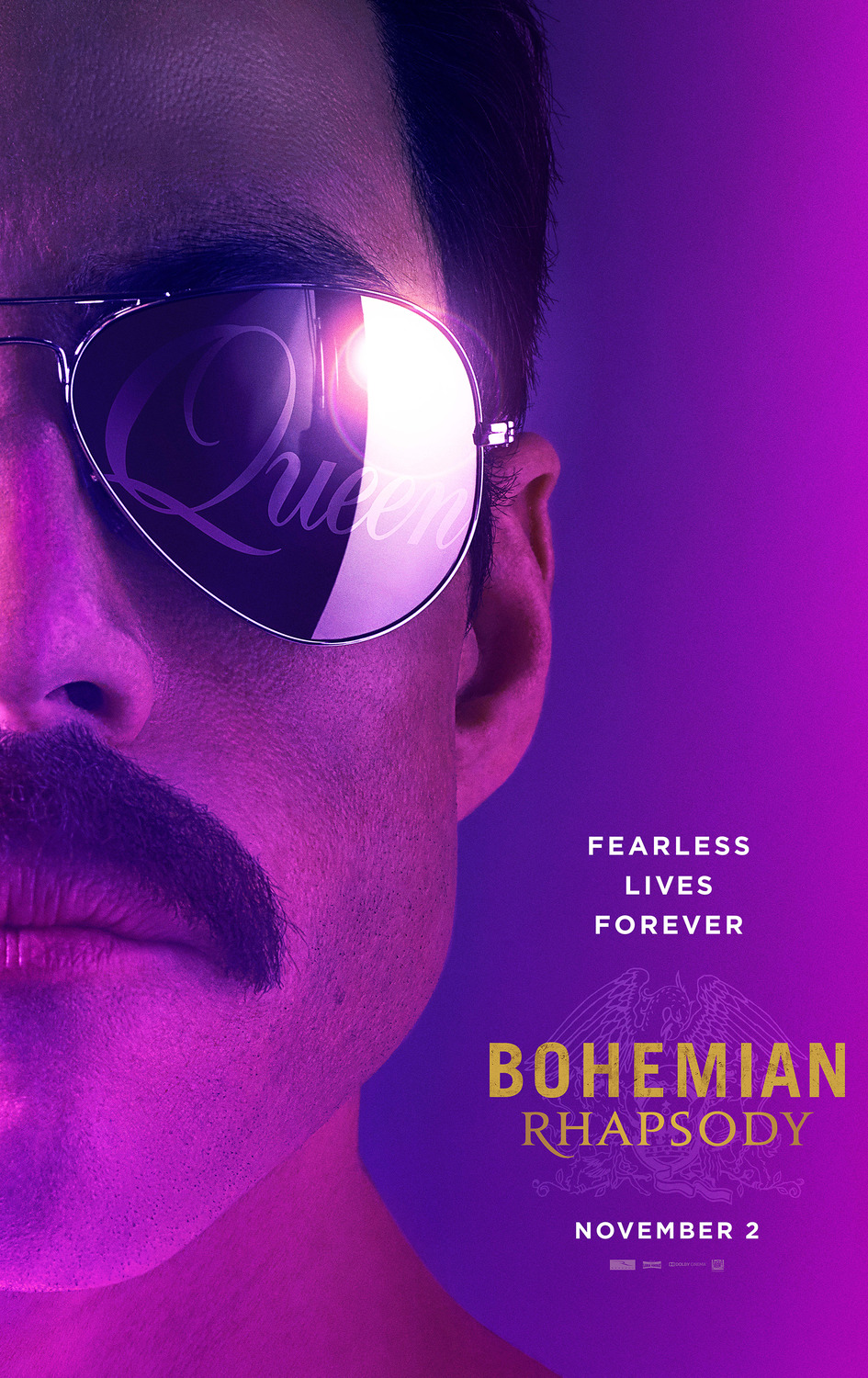“Is this the real life? Is this just fantasy?”
The opening lines of Queen’s iconic song cut to the heart of what is right and what is wrong with the band’s new namesake biopic, directed most of the way by Bryan Singer and finished by the uncredited Dexter Fletcher (who came on after Singer’s firing over creative differences). While what the film gets right is often moving and often insightful stuff, what’s wrong (or omitted entirely) keeps Bohemian Rhapsody from going down as an unqualified success.
The first thing that’s right is the electric presence of the outstanding Rami Malek as frontman Freddie Mercury. Growing a mustache and jamming prosthetic teeth into his mouth were the easy part. What sets Malek apart among acting performances this year is how he channels Mercury (and his truly one-of-a-kind carriage and mannerisms) without ever making it feel like mimicry. And though Mercury is most recognized through his life on the stage, Malek offers a heartfelt and often devastating look at the entire man, plentiful warts and all.
After a pre-Live Aid prelude, Bohemian Rhapsody kicks off in 1970, when young Farrokh Bulsara (Malek) goes to a London club to hear the band Smile, which includes Brian May (Gwilym Lee) and Roger Taylor (Ben Hardy). After the lead singer quits, Farrokh (having not yet adopted his stage name) auditions for the band on the spot and is chosen to be the new frontman.
The chemistry between the bandmates is apparent from the get-go, with each—including bassist John Deacon (Joseph Mazzello), who comes on board shortly after—contributing equally in the band’s infancy. And though it’s fun to see the iconic songs “Keep Yourself Alive”, “Killer Queen”, and the epic “Bohemian Rhapsody” performed once again, the movie skimps on the creative process, giving just a taste of what one can only imagine were real-life bits of magic.
As Mercury fosters his relationship with Mary Austin (a mesmerizing Lucy Boyton) and copes with his conservative parents, the band gets more and more popular. And at every step of the way, Malek shepherds the film with a powerful, multi-layered performance, bringing us into Mercury’s mind like never before, providing a strong, clear sense of the tortured man behind the band.
There are plenty of fun moments along the way, too, including every scene with a barely recognizable Mike Meyers as EMI record executive Ray Foster, who offers up perhaps the best meta-humor moment of the decade. There’s also sneaky-good work on display from Allen Leach as Mercury’s manager Paul Prenter and also by Aidan Gillen and Tom Hollander as the band’s successive managers.
Aside from liberties with the timeline (some of which are so flagrant they will make true Queen fans burst a blood vessel), the film unfortunately glosses over much of Mercury’s private life, only barely scratching the surface of his lifelong struggle with his internal demons, including his conflicted sexuality and his debaucherous days and nights.
Screenwriter Anthony McCarten (Darkest Hour) obviously only had so much time with which to work, and, frankly, it’s Queen’s musical legacy that is the most important, so that’s what ends up shining brightest in Bohemian Rhapsody.
Even though it’s difficult to leave the theater without feeling like a more honest and comprehensive film was left on the editing room floor, the finale—a near perfect recreation of the band’s famous Live Aid set—only serves to strengthen the band’s standing as one of the best of all time while ending the movie with a genuine stand-up-and-cheer moment. It’s real life and fantasy rolled into one, with a heck of a killer soundtrack.
Rating
4/5 stars
